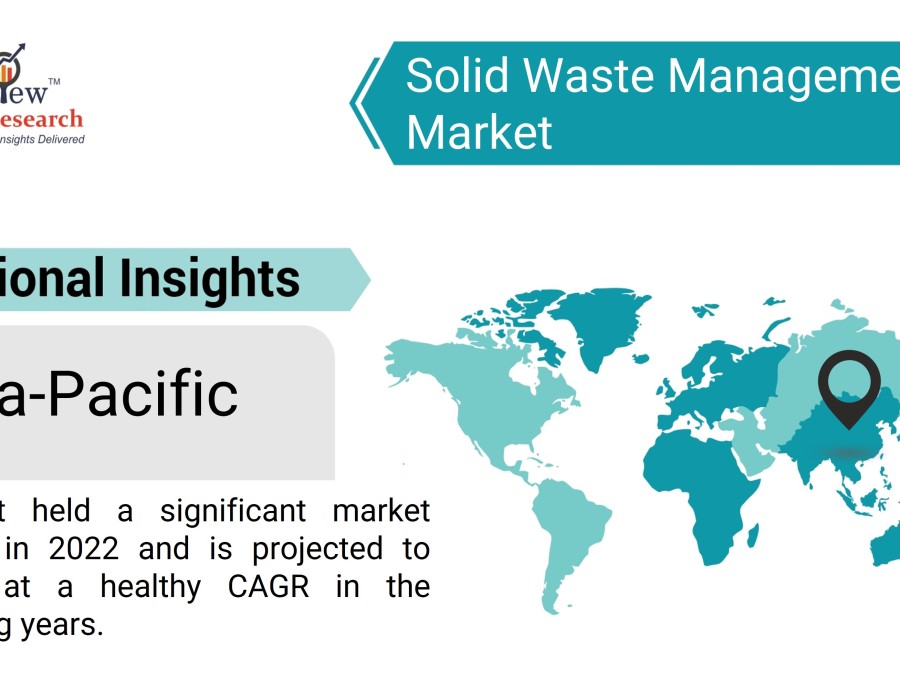According to Stratview Research, the solid waste management market was estimated at USD 1249.43 billion in 2022 and is likely to grow at a CAGR of 2.69% during 2023-2028 to reach USD 1470.27 billion in 2028.
In an era where sustainability is paramount, the Solid Waste Management (SWM) market plays a crucial role in transforming what was once considered waste into valuable resources. The paradigm shift from mere disposal to resource recovery is reshaping the industry, offering innovative solutions that not only address environmental concerns but also unlock economic opportunities. In this exploration, we delve into the trends shaping the Solid Waste Management market, where waste is being turned into wealth.
Circular Economy Principles: At the forefront of modern waste management trends is the adoption of circular economy principles. This approach emphasizes minimizing waste, maximizing the use of resources, and promoting recycling and reuse. The Solid Waste Management market is increasingly aligning with these principles to create a more sustainable and efficient system.
Advanced Sorting Technologies: Technological advancements are revolutionizing the sorting and separation of waste materials. Automated sorting systems utilizing artificial intelligence, robotics, and advanced sensors are becoming integral to the Solid Waste Management process. These technologies enhance efficiency, increase recycling rates, and contribute to the recovery of valuable materials.
Waste-to-Energy Initiatives: Waste-to-energy (WTE) initiatives are gaining traction as a viable method of managing solid waste. Technologies such as incineration and anaerobic digestion are being employed to convert organic waste into energy. This not only addresses waste reduction but also contributes to the generation of renewable energy.
Biodegradable Waste Management: With a growing emphasis on reducing landfill usage, the Solid Waste Management market is witnessing an increased focus on biodegradable waste management. Composting, vermiculture, and other organic waste treatment methods are being employed to divert biodegradable materials from landfills, enriching soil and reducing environmental impact.
Smart Waste Management Systems: The integration of Internet of Things (IoT) technologies in waste management has given rise to smart waste management systems. These systems utilize sensors and data analytics to optimize waste collection routes, monitor container fill levels, and enhance overall operational efficiency, contributing to cost savings and resource optimization.
Plastic Waste Mitigation Strategies: Addressing the global plastic pollution crisis is a key trend in the Solid Waste Management market. Innovative solutions such as plastic recycling, upcycling, and the development of alternative materials are being explored to reduce the environmental impact of plastic waste and create a more sustainable approach to its management.
Extended Producer Responsibility (EPR): The concept of Extended Producer Responsibility is gaining prominence as a regulatory and market-driven approach to waste management. This trend holds producers accountable for the entire life cycle of their products, encouraging them to design for recyclability and take responsibility for the proper disposal of their goods.
Community Engagement and Awareness: A shift towards sustainable waste management requires active community involvement and awareness. Education campaigns, community recycling programs, and incentives for responsible waste disposal are trends aimed at fostering a sense of responsibility and encouraging environmentally conscious behaviors.
Collaboration and Public-Private Partnerships: Solid Waste Management is increasingly becoming a collaborative effort involving public and private entities. Public-private partnerships are fostering innovation, leveraging resources, and creating synergies that lead to more effective waste management solutions.
Conclusion: The Waste to Wealth transformation in the Solid Waste Management market is indicative of a broader shift towards sustainability and environmental stewardship. As trends continue to evolve, the industry is poised to play a pivotal role in not only reducing the environmental impact of waste but also unlocking economic value from what was once considered disposable. The journey from waste to wealth is an ongoing and transformative process, and as technologies and strategies continue to advance, the Solid Waste Management market will play a central role in building a more sustainable and prosperous future.






Comments